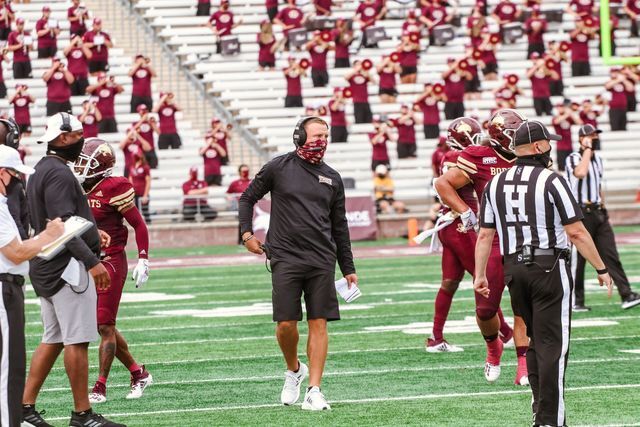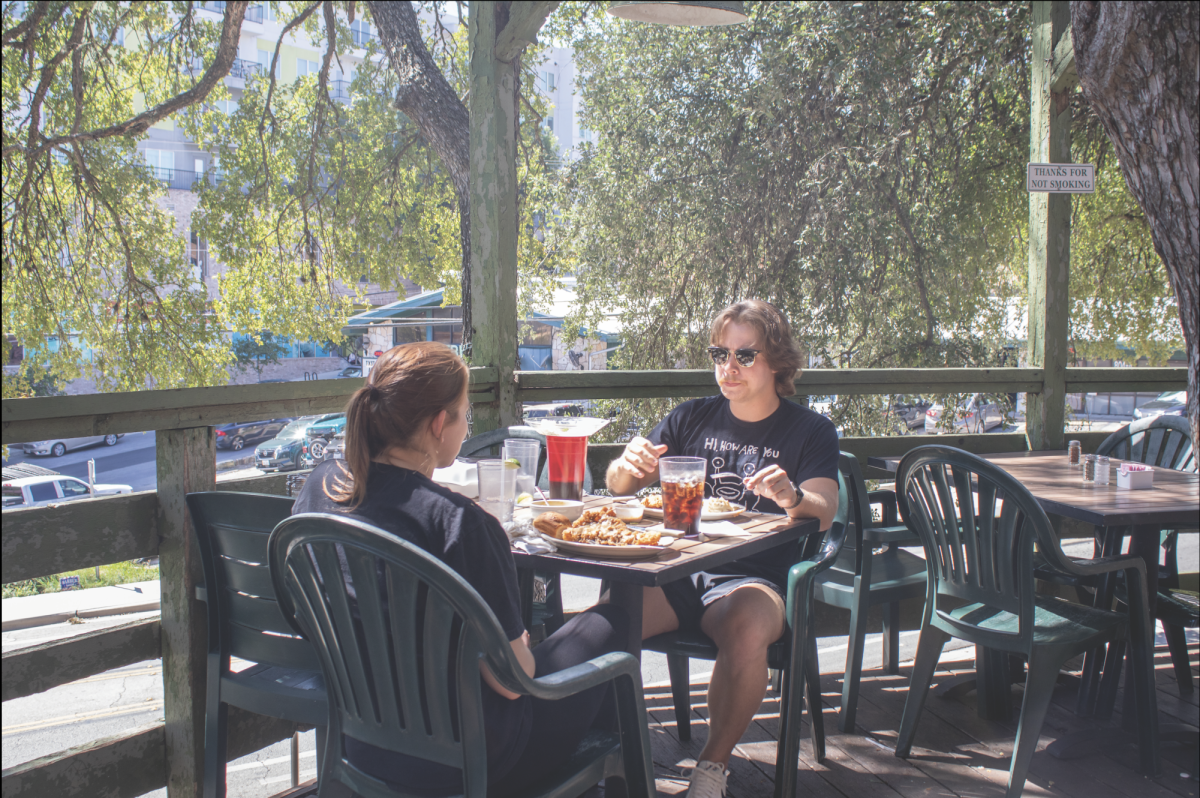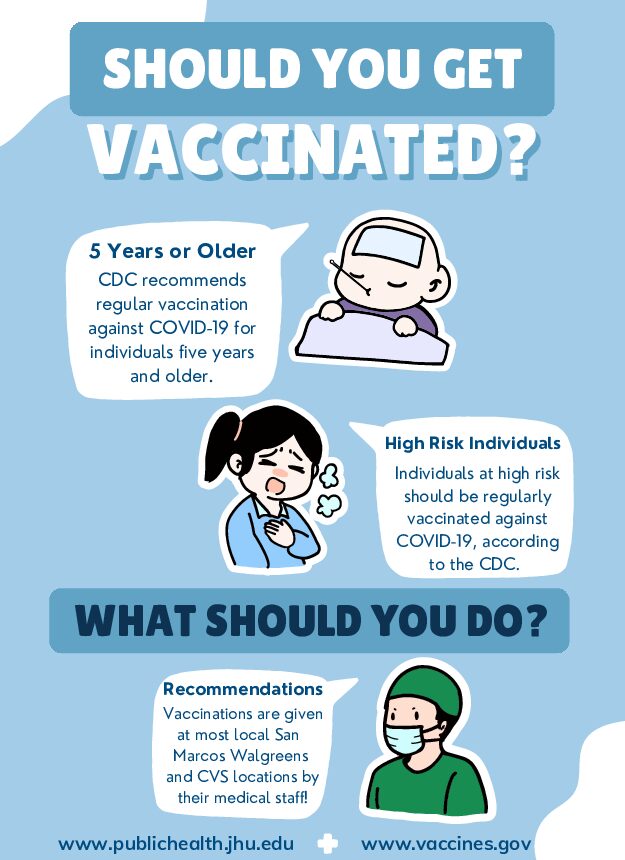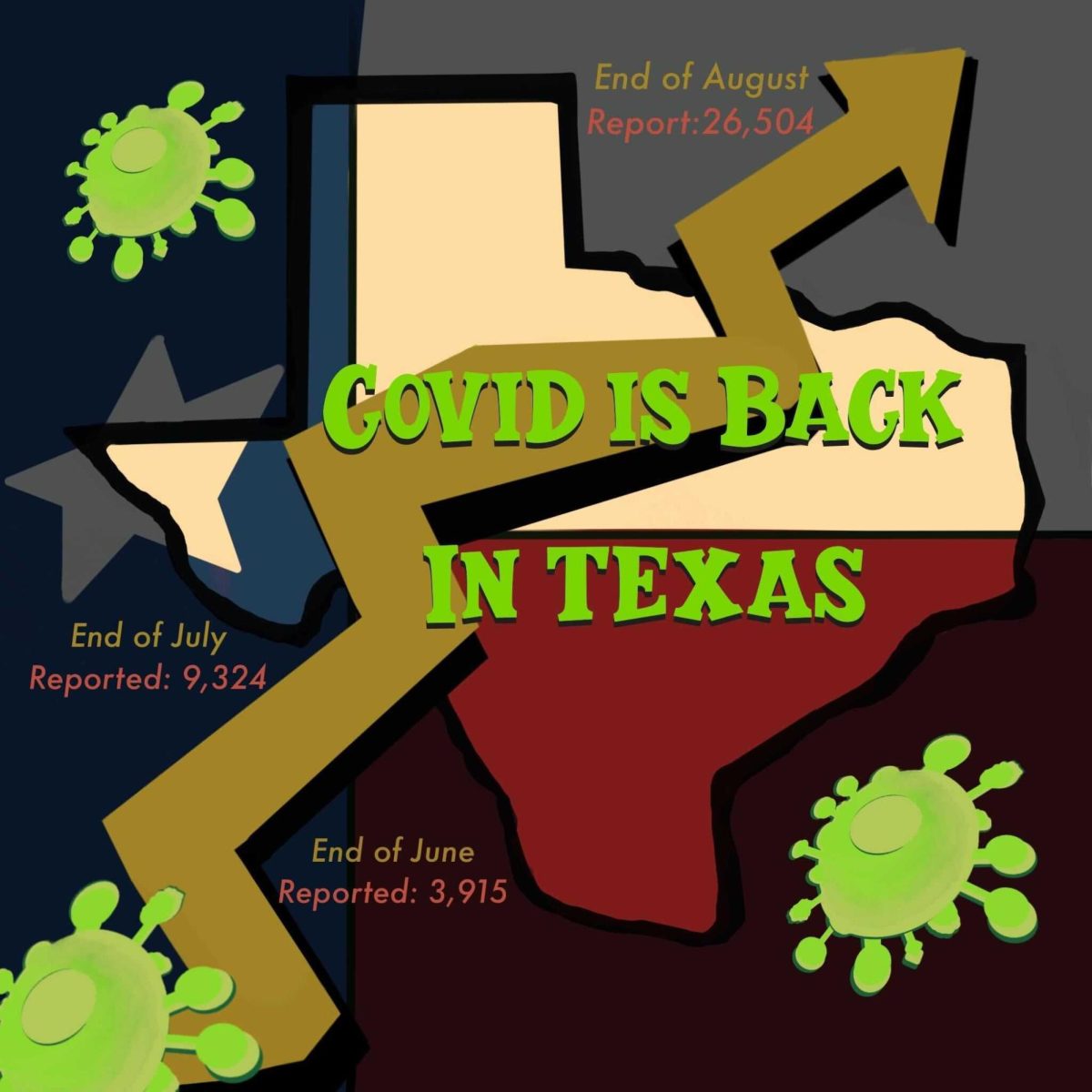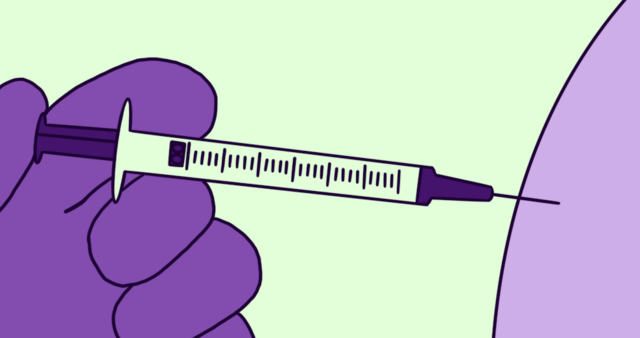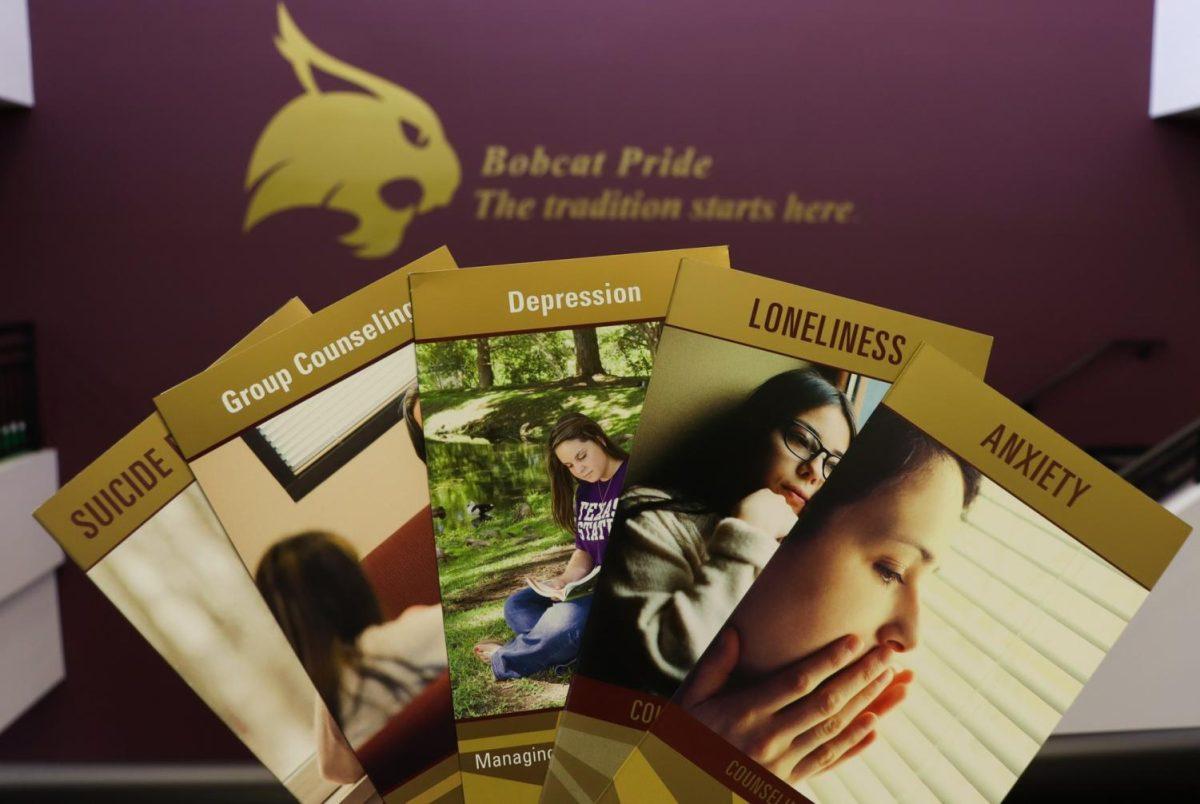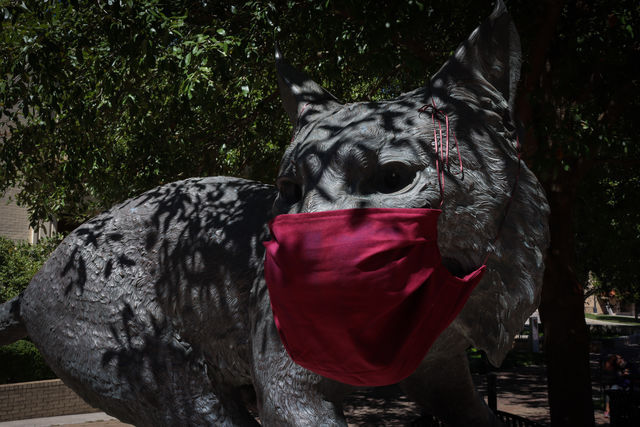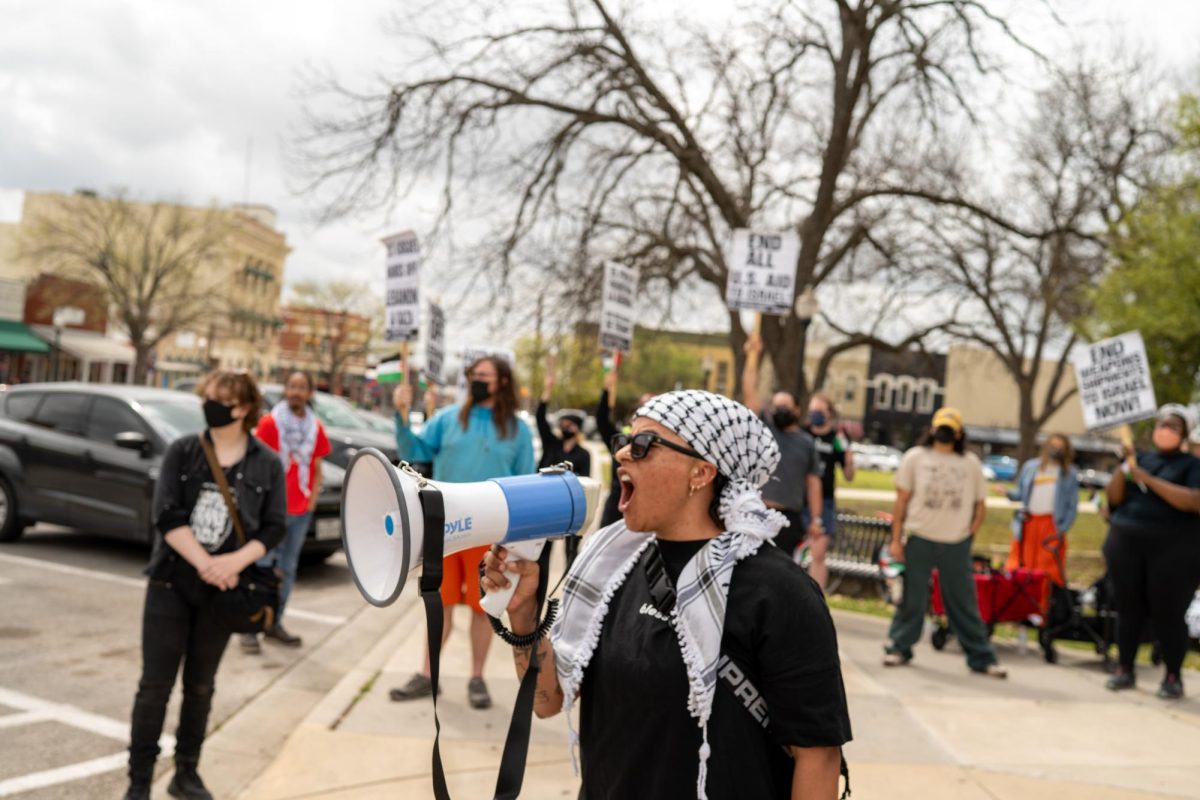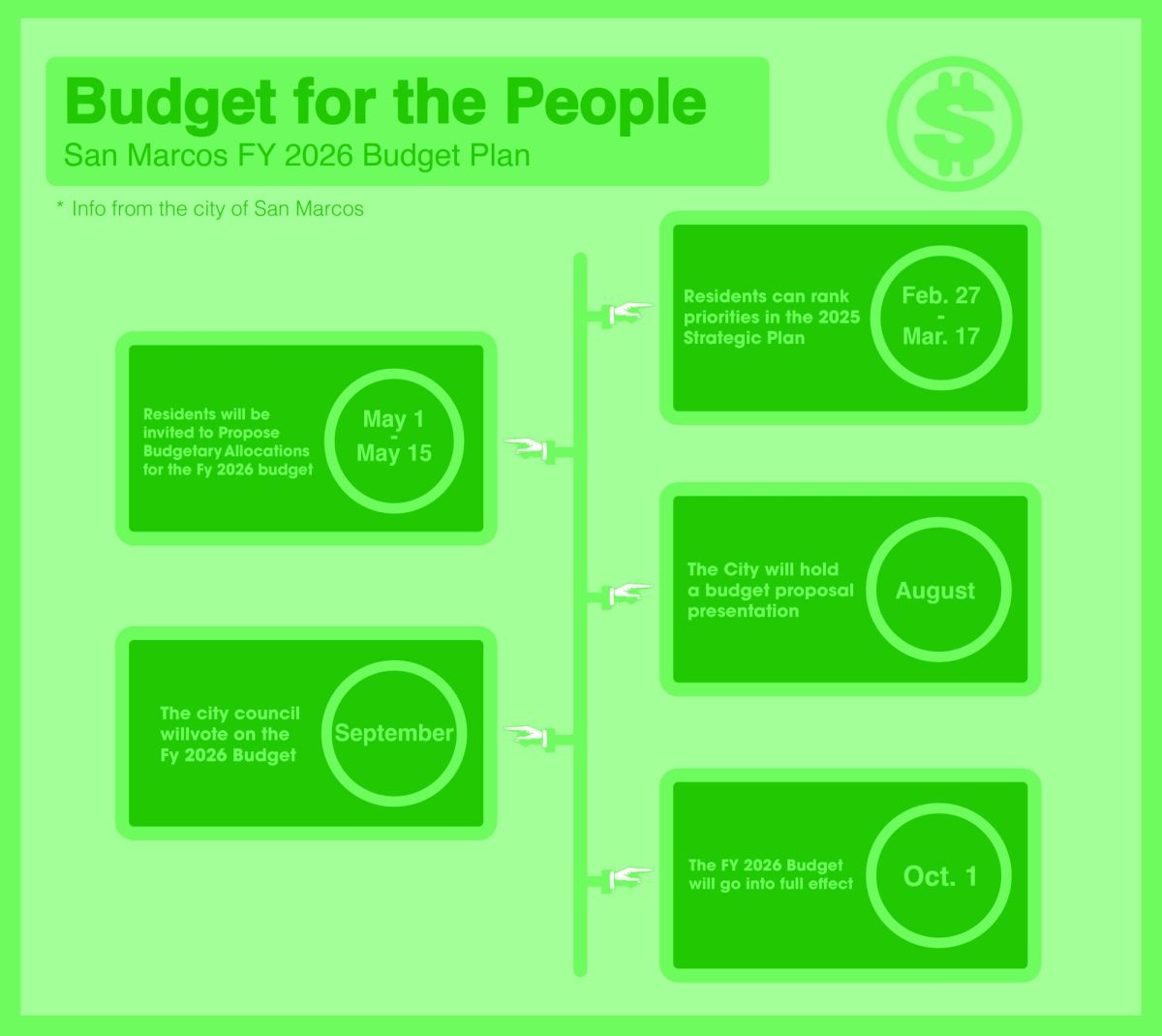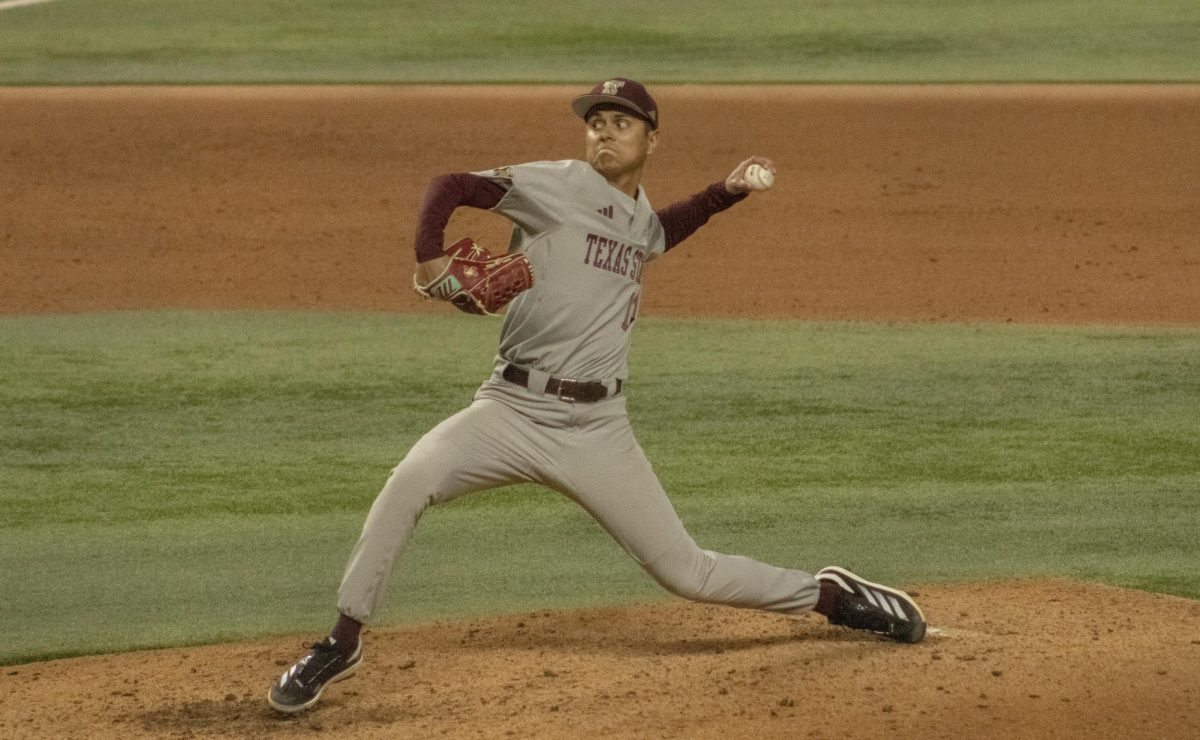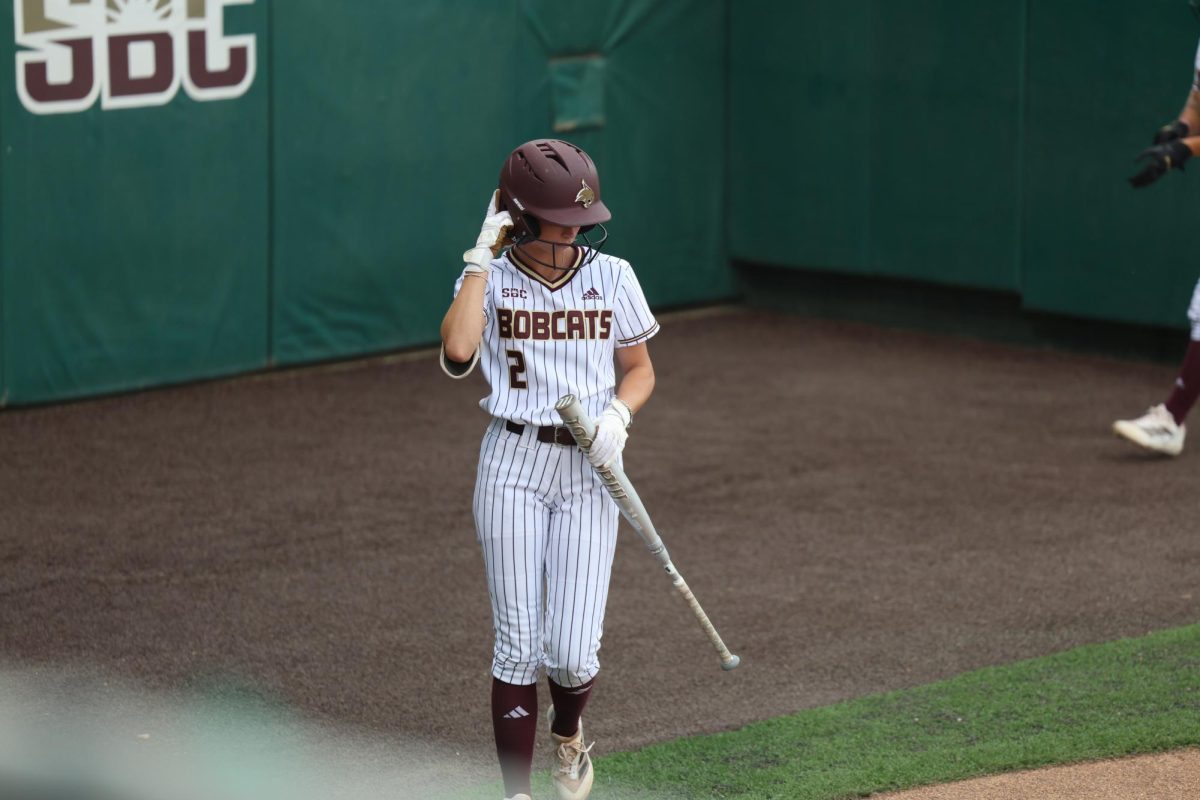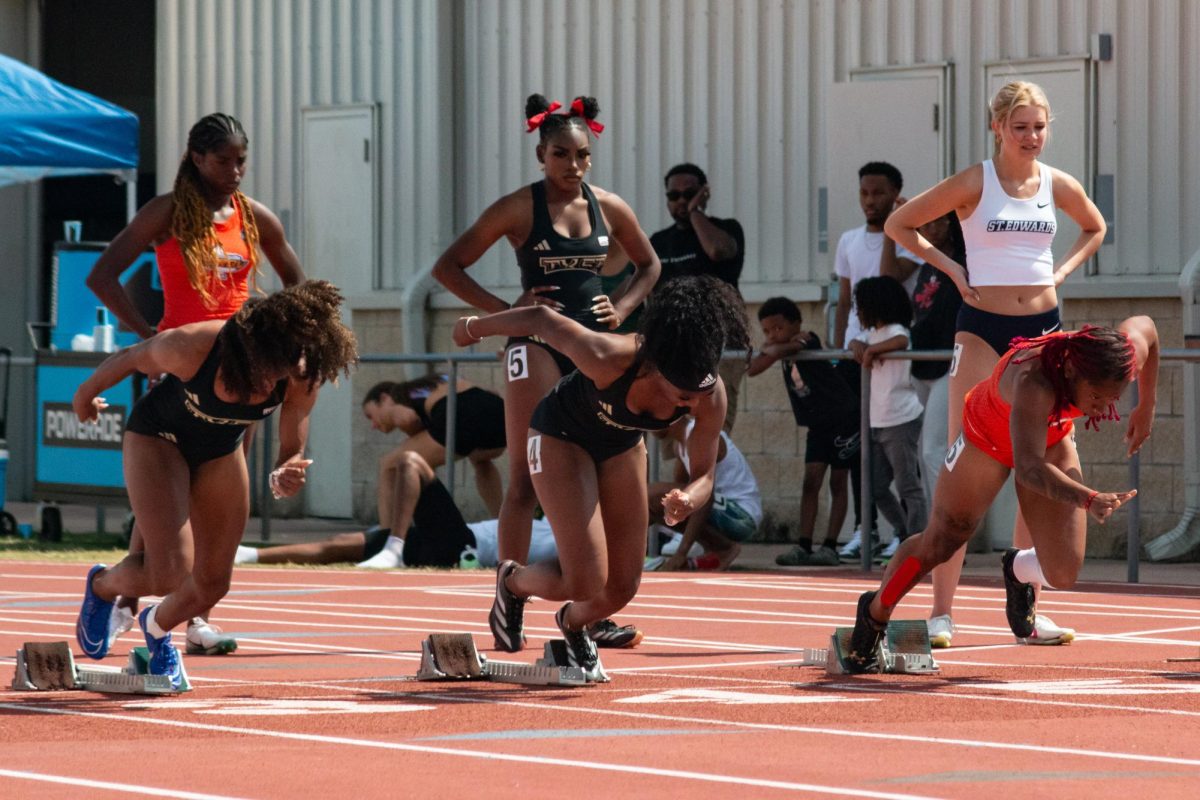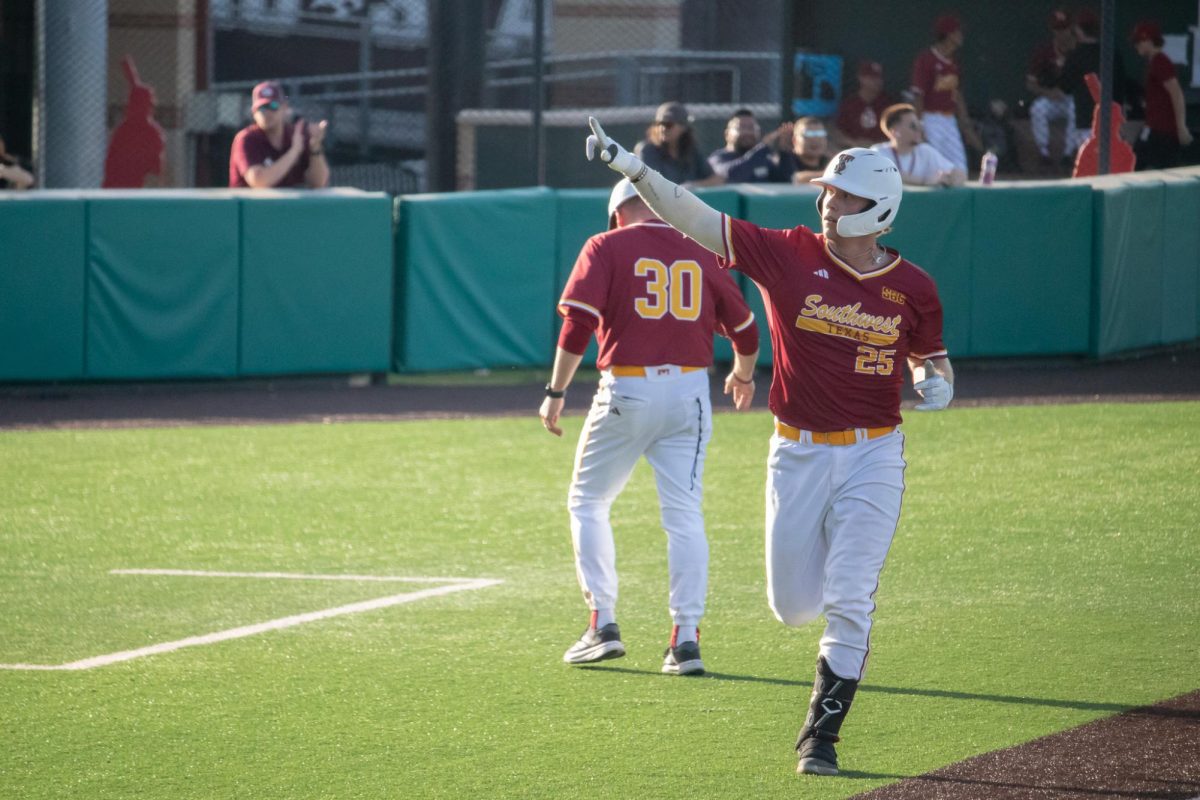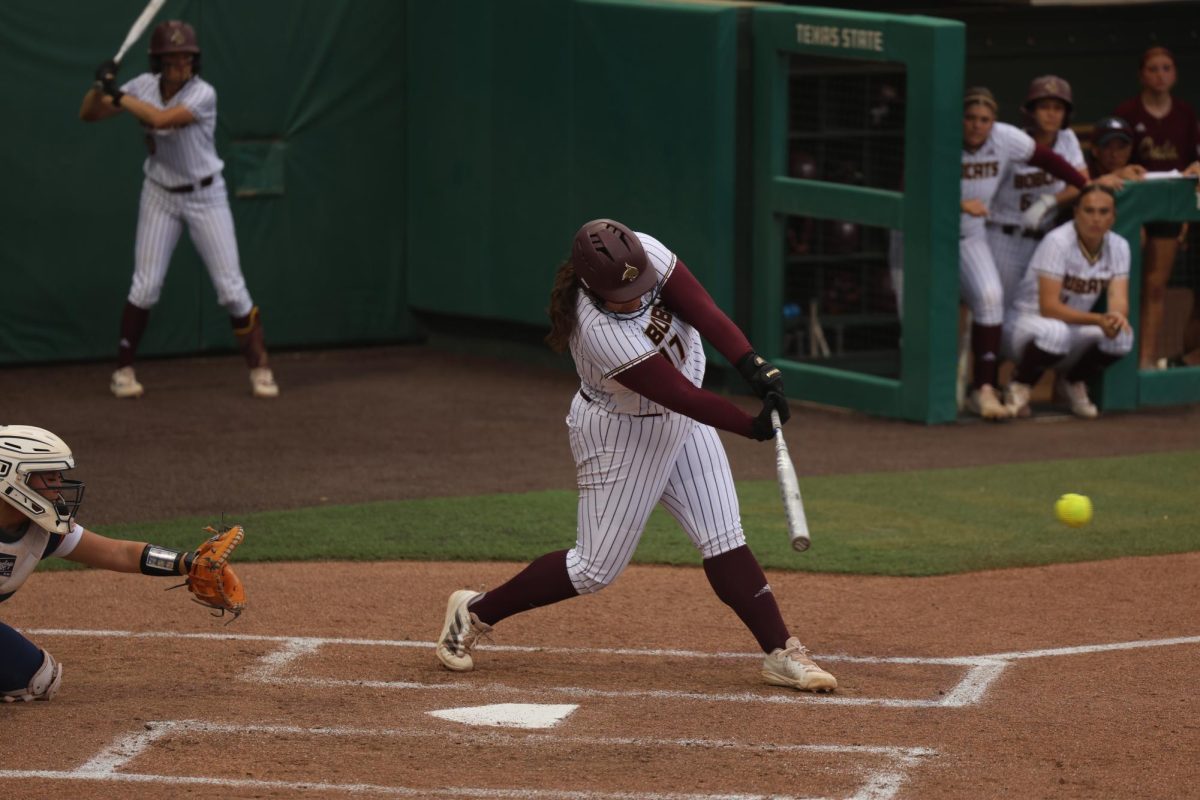Texas State athletes receive a majority of the university’s COVID-19 testing output to meet the Sun Belt Conference’s health guidelines, says Student Health Center Director Emilio Carranco.
Testing and protocols are done in conjunction with the Student Health Center, which processes all tests conducted by the university, including athletics.
Carranco says the university conducts 500-550 tests per week, the majority of which go to athletics. The number of athletes tested varies weekly depending on the number of games played and by which sport.
“Some weeks, [student-athletes] have to test twice a week, and other weeks they only have to test once,” Carranco said. “There could be anywhere from 200 to 400 tests [done by athletics], depending on whether they have to test twice that week or [only once].”
According to Carranco, the center’s testing capabilities depend on demand, but it has the ability to conduct 500 tests a day if needed.
According to the Texas State Athletics website, all student-athletes and staff must follow the same COVID-19 testing protocols, regardless of if they are in season or not. These protocols have since impacted the normal day-to-day routines of teams. They include required COVID-19 testing, regular temperature checks, symptom screenings, required face masks and social distancing when possible.
The volleyball team is in the pursuit of its third consecutive conference title and Sean Huiet’s first as head coach. To achieve that goal, Huiet says he understands there are compromises he and the team will have to make to stay safe.
“My personal opinion of how everything is being handed can’t supersede what we need to do for the Sun Belt to be able to compete,” Huiet said. “I don’t think there was anything that I was like, ‘No, I’m not doing this or I’m not playing.’ I wanted it to be as normal as possible, but I also want our kids to be as safe as possible.”
Student-athletes and staff who are in season are tested 72 hours prior to an event. Additionally, student-athletes who are not in season are also tested but not as often. This is because in-season athletes are more likely to be infected and to infect others due to traveling.
Athletes and staff will fail the COVID-19 protocol if they record a temperature of 100.4 degrees or higher and/or display two COVID-19 related symptoms. The person will then be sent home and told to visit the Student Health Center to receive a COVID-19 test. While waiting for test results, the individual is required to self-isolate, and in the case of a positive test, will quarantine for 10 days from the date they test positive.
Head Athletic Trainer Jason Karlik says the only test currently available to the university is the nasopharyngeal COVID-19 test, which consists of a cotton swab being inserted into both nasal cavities and rotated several times to collect a sample for testing.
The university is considering alternative testing methods, as some consider the nasopharyngeal test to be uncomfortable.
“[Student-athletes] don’t get a choice at the moment,” Karlik said. “It’s the nasopharyngeal; I call it the brain tickler because they have to get [way] back in there.”
Karlik says they have sent some student-athletes to the Curative testing site located on the Quad. Curative uses an oral swab that athletes have seemed to prefer.
Karlik says they are working to get oral tests to use as opposed to the nasopharyngeal.
“The oral swab is coming and will hopefully [become] more mainstream here shortly so that we don’t have to make it as uncomfortable for the kids,” Karlik said.
Karlik claims it is common for universities to have athletes or staff miss or even cancel/postpone games because athletes were either identified as close contacts to a positive case or tested positive. He says Texas State is no exception.
“Everybody’s had an issue whether they’ve been either contact traced or actually tested positive,” Karlik said. “They deal with it, I think they’ve dealt with it pretty well actually.”
Texas State’s volleyball team experienced this firsthand. When the team returned to campus just before the fall semester, Huiet tested positive for COVID-19 the first time the team was tested. This set the team back as they geared up for the upcoming season.
“I had to be out and at home for the last 10 days leading up to the season,” Huiet said. “I was doing everything from [home] trying to prep for the season. Luckily, I didn’t have any symptoms; my son didn’t get it, and nobody on the team got it.”
Football has also had its difficulties. Quarterbacks Brady McBride and Tyler Vitt both missed games due to COVID-19 protocols. Football Head Coach Jake Spavital says the team is still adjusting to the new way in which the team must operate.
“We may have some things out there we may not like, so we will have to adjust on the run,” Spavital said. “But, we have it down to a good plan to keep everybody in a safe environment.”
Free COVID-19 tests are available on campus until the end of the fall 2020 semester. Additionally, appointments can be made with the Student Health Center.
Categories:
COVID-19 testing in athletics: Here’s how it works
October 27, 2020
Texas State football Head Coach Jake Spavital walks on the field while wearing a mask in between plays during a game against Southern Methodist University, Saturday, Sept. 5, 2020, at Bobcat Stadium.
0
Donate to The University Star
Your donation will support the student journalists of Texas State University. Your contribution will allow us to purchase equipment and cover our annual website hosting costs.
More to Discover



